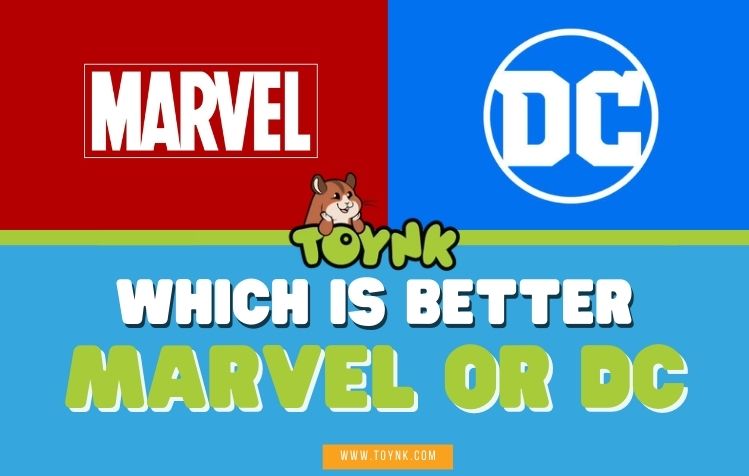In the thrilling world of comics and superheroes, the eternal battle of which is better, Marvel or DC, rages on.
It's a debate that has fueled countless discussions, passionate arguments, and friendships of many Superhero fans.
To ensure that this discussion remains fair and balanced, we reached out to a comic book historian with years of experience studying the narratives, characters, and evolution of both Marvel and DC.
Head To Head Comparison Between DC & Marvel
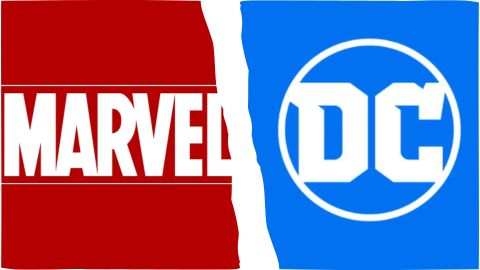
These iconic universes have deep-seated origins, with DC tracing back to 1934 as National Allied Publications [1] and Marvel emerging in 1939 as Timely Comics Publications [2].
DC created iconic villains with rich backstories that make them stand out, and Greek Mythology inspires some. The latter sometimes struggles to create memorable bad guys.
Marvel is lauded for its intricate interconnectedness. In contrast, DC has faced challenges in keeping its movie universe consistent.
These great comics highlight the strength and complexity of female characters. However, Marvel's movies shine in crafting relatable, flawed heroes, while DC often portrays its characters as iconic, larger-than-life figures.
Moreover, both have explored animated movies, television series, and other media extensions, with Marvel achieving remarkable box office success and interconnected storytelling.
Marvel vs DC Comparison Chart
| Aspect | DC | Marvel |
| Creation Year | 1934 (as National Allied Publications) | 1939 (as Timely Publications) |
| Popular Heroes | Superman, Batman, Wonder Woman | Spider-Man, Iron Man, Captain America |
| Popular Teams | Justice League, Teen Titans | The Avengers, X-Men, Fantastic Four |
| Tone | Often darker and more serious | Known for a mix of drama and humor |
| Gothic City | Home to Batman (Gotham City) | N/A |
| Metropolis | Home to Superman | N/A |
| Famous Villains | The Joker, Lex Luthor, Darkseid | Doctor Doom, Magneto, Green Goblin |
| Key Crossover | Crisis on Infinite Earths | Secret Wars |
| Multiverse | Known for its complex multiverse | It also features a multiverse concept |
| Legacy | Iconic for its powerful and iconic superheroes | Known for relatable, flawed characters |
Key Differences
History & Origins
Both Marvel and DC have a rich history and origin stories that have played a significant role in shaping the comic book industry.
DC, originally known as National Allied Publications, traces its roots back to 1934, and it made its iconic debut with the introduction of Superman in 1938.
Marvel, originally known as Timely Publications, emerged in 1939, introducing legacy heroes like Captain America and the Human Torch. These early creations set the stage for Marvel's future success.
While both companies have a storied history, DC has the distinction of pioneering the superhero archetype with Superman's introduction, making it a trailblazer.
Female Superheroes
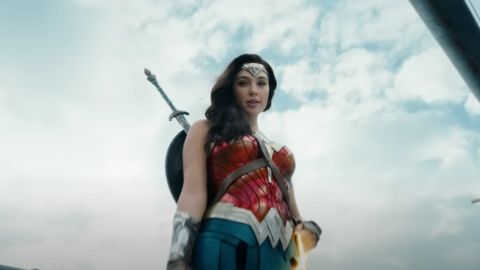
DC heroes like Wonder Woman and Batgirl stand out as some of the most iconic and enduring characters in DC movies.
Wonder Woman, in particular, is celebrated as a symbol of empowerment and equality, making her an essential part of DC's legacy.
While featuring formidable female characters like Black Widow and Captain Marvel, Marvel often takes a more grounded approach by showcasing the vulnerabilities and complexities of these heroines.
Villains
DC Comics is renowned for its villains like Joker, Harley Quinn, Lex Luthor, and Darkseid [3].
What sets DC's villains apart is often their elaborate and intricate backstories, which add layers of complexity to their characters in the action comics.
Joker and Harley Quinn, in their enigmatic origin and chaotic nature, are considered the greatest villains in comic books.
Marvel comics feature memorable foes like Doctor Doom, Magneto, and the Green Goblin, but unlike DC writers, they face challenges in creating villains with enduring appeal.
These villains tend to have compelling motives, but their character development may not always reach the depth seen in DC's counterparts.
Relatable Heroes
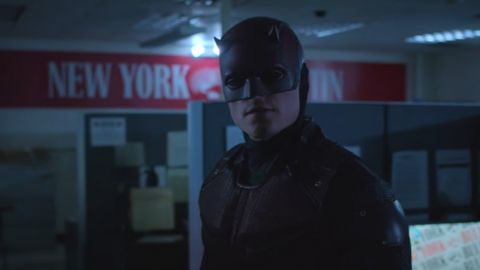
Marvel has gained a reputation for excelling in crafting characters with human flaws and vulnerabilities, setting it apart from DC's more iconic and larger-than-life figures.
Jack Kirby and Stan Lee usually develop the Marvel characters so they have a more consistent feel, look, and tone.
Marvel's heroes, like Daredevil and the X-Men, are known for their relatability.
Peter Parker, aka Spider-Man, struggles to balance his responsibilities as a hero and a regular teenager, which resonates with readers.
Marvel character Iron Man and DC character Batman are billionaires who use technology to fight crime.
Unlike Marvel, DC often portrays its heroes as iconic and mythic figures.
Superman, Green Lantern, and Batman from Justice League embody heroism, justice, and power ideals. DC characters are aspirational and inspirational.
Animated Movies
If you appreciate faithful adaptations of classic comic storylines with darker themes, DC may be your preference.
On the other hand, if you value innovative animation and a diverse range of storytelling styles, Marvel's animated series and movies may resonate more with you.
Many fans agree that DC's animated universe often delves into darker, more mature themes, appealing to a slightly older audience.
Marvel's animated offerings often capture the spirit of Marvel comic books and their counterparts and appeal to a broad age range.
Continuity
Marvel's movies are celebrated for their intricate interconnectedness. Starting with the release of "Iron Man" in 2008, it embarked on a journey to weave together characters, storylines, and events across numerous films.
The success of the MCU is primarily attributed to this interconnected storytelling, allowing fans to see Marvel characters from various films come together in epic team-ups like "The Avengers."
DC Universe has faced challenges in maintaining narrative coherence. Films like "Man of Steel" and "Wonder Woman" exist within the same universe but have often been criticized for a lack of consistency and connectivity.
Box Office Hits & Grossings
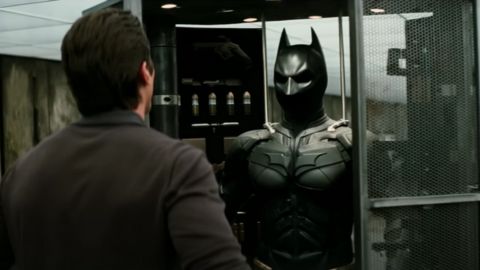
Marvel has a clear advantage regarding box office hits and gross earnings.
While DC has had its moments of success, Marvel's MCU has set a high bar in superhero cinema and continues to be a significant player in the global arena.
DC has also had notable successes, particularly with "The Dark Knight" trilogy directed by Christopher Nolan. These comics and films performed exceptionally well and received critical acclaim.
Franchises & Comics
Both Marvel and DC offer a wealth of content and media adaptations, ensuring that Marvel fans and DC fans can immerse themselves in their favorite characters and stories in various ways.
DC's iconic titles include "Action Comics," "Detective Comics," and "Justice League Dark," while Marvel comics boasts titles like "The Amazing Spider-Man," "X-Men," and "The Avengers." [4]
DC comics are the foundation for the rich narratives that have captivated readers for decades.
In terms of franchises, many fans agree that Marvel's movies have been a game-changer, creating a shared narrative experience across multiple films.
DC has also ventured into shared cinematic universes despite challenges in achieving narrative consistency.
Read: Marvel vs Star Wars
Universe
Film Universe
DC cinematic universe faced challenges in maintaining narrative continuity. Films like "Man of Steel," "Batman v Superman: Dawn of Justice," and "Wonder Woman" are part of the DC Extended Universe (DCEU).
While these films have succeeded individually, DC Universe has taken a more varied approach, incorporating interconnected stories and standalone films.
Marvel Cinematic Universe (MCU) has better movies in terms of cinematic aspects. It features interconnected films that tell a grand narrative across multiple characters and storylines.
TV Universe
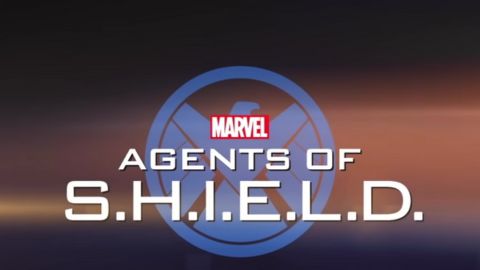
DC Comics has found its strengths in film and television, creating unique and diverse fan experiences in both mediums.
DC has ventured into television with the Arrowverse, a shared TV universe that includes shows like "Arrow," "The Flash," "Supergirl," and "Legends of Tomorrow."
This TV DC universe has embraced crossover events and diverse DC characters, creating a dedicated fanbase.
Marvel Universe has explored television with series like "Agents of S.H.I.E.L.D." and "Daredevil," though these shows were more loosely connected to the MCU.
The recent expansion of the Marvel Universe into streaming platforms, with series like "WandaVision," "Moon Knight," and "Loki," has opened up new avenues for interconnected storytelling on the small screen.
Read: Top Marvel Gifts
FAQs
Why is DC not as popular as Marvel?
Marvel is more popular because it has excelled in creating a well-connected cinematic universe, consistently delivering blockbuster films with interconnected storylines, creating a sense of continuity and anticipation. Also, Marvel takes a different approach to making comics and movies.
Who has a bigger fan base, DC or Marvel?
Marvel has a slightly larger fan base, 66%, compared to DC's 61%.
It's important to note that fan base size can fluctuate over time and across different demographics, and various factors, including the popularity of characters, media adaptations, and storytelling, influence it.
Which is older, DC or Marvel?
DC is older than Marvel. DC, originally known as National Allied Publications, was founded in 1934.
It introduced the world to Superman in 1938, marking the beginning of the superhero genre as we know it today. Marvel emerged in 1939, making it slightly younger than DC.
Which is more violent, Marvel or DC?
Marvel superhero characters tend to be more violent than DC superhero characters.
However, the level of violence exhibited by superheroes in Marvel comics and DC comics varies greatly depending on the specific characters, storylines, and creative directions different writers and artists take.
Wrapping Up
Both Marvel and DC have made significant contributions to the world of comics and entertainment, and each has its unique strengths and appeal, but DC is overall better than Marvel.
DC is celebrated for its iconic and legacy characters like Superman, Jason Todd, Batman, Green Lantern, and Wonder Woman, who have become cultural symbols of heroism. Many read comics and then look forward to the movies.
Many prefer DC because of its deep-rooted history in the comic book industry, and its pioneering contributions to the superhero genre cannot be overlooked. Alan Moore, Garth Ennis, and Neil Gaiman have told powerful stories uncommon in Marvel.
While DC is better, it's noteworthy that Marvel crafted compelling and intricate storylines that resonated with audiences worldwide.
Some people prefer Marvel because of its well-crafted story arcs that have impacted the world of comics and cinema.
References:
- https://www.britannica.com/topic/DC-Comics
- https://www.npr.org/2014/12/16/370368872/marvel-at-75-still-slinging-webs-and-guarding-galaxies
- https://www.ign.com/articles/dc-comics-villain-face-off-winner
- https://www.imdb.com/title/tt0848228/

